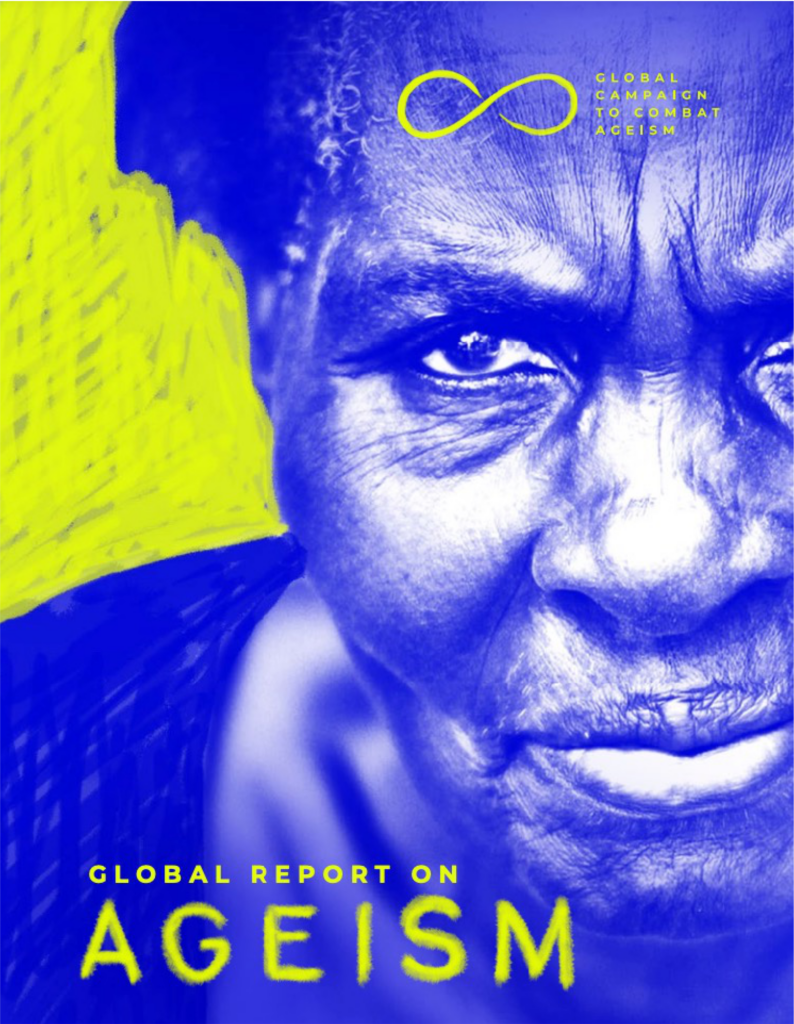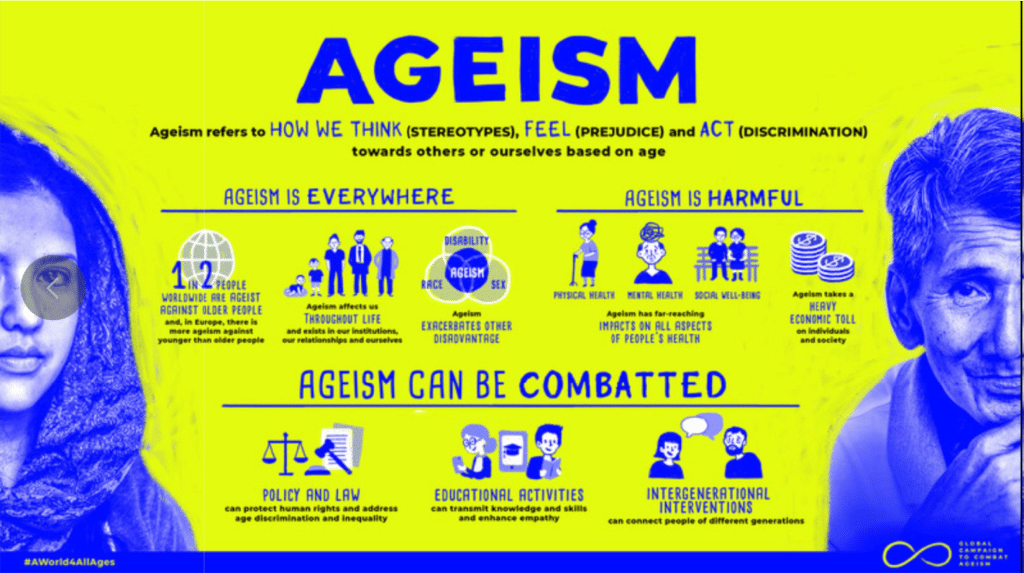Age does not define me
By George Lee •
"Ageism has serious and far-reaching consequences for people’s health, well-being and human rights and costs society billions of dollars" - WHO, Global Report on Ageism 2021.
When I asked the mighty anti-ageism pioneer, Ashton Applewhite recently, what will make us live a healthy, happy and joyful later life, she said loud and clear, “this will not be achieved until we confront age bias between our ears and in the world around us”.
Ageism is dangerous. It affects how we think (stereotypes), how we feel (prejudice) and how we act (discrimination) towards others because of their age. It also has a powerful affect on how we see ourselves.
Ageism affects all ages
Ageism isn’t something that just affects just older people. Ageism affects all of us and it can take on different forms at different stage of our lives. A teenager such as Greta Thunberg can be ridiculed for starting a political movement; both older and younger people might be denied a job because of their age; or an older person might feel they have to move away from their community and home as they age.
COVID-19 has shown us the real extent of ageism
Over the last year, and through COVID 19, we have seen ageism in action in all its full technicolour discriminatory power. COVID 19 has without a doubt affected people of all ages. Yet it is the mass labelling of people by their age which has highlighted how deeply problematic our sub-conscious beliefs around ageing are. Older people are often portrayed as uniformly frail and vulnerable, while younger people have been portrayed as invincible, or as reckless and irresponsible. Stereotyping (how we think), prejudice (how we feel) and discrimination (how we act) based on age, is not new and now is the time to put an end to it. Maybe we need to be thankful to COVID 19 for brining these harmful and deeply attitudes to the fore?

The message is clear! We can and we must prevent ageism. We all must take responsibility to face ageism head on.

Global report on ageism
So what can we do? I urge all of you to read the groundbreaking global report on ageism published in March 2021 by the World Health Organisation (WHO). It could not be more welcome and I for one, am embracing its presence and its toolkit of what we can do to stop ageism with whoops of joy.
As they so clearly highlight in this powerful report
“Ageism is prevalent, ubiquitous and insidious because it goes largely unrecognised and unchallenged. Ageism has serious and far-reaching consequences for people’s health, well-being and human rights and costs society billions of dollars. Among older people, ageism is associated with poorer physical and mental health, increased social isolation and loneliness, greater financial insecurity and decreased quality of life and premature death. Ageism, in younger people has been less well explored in the literature but reported by younger people in a range of areas including employment, health and housing. Across the life course, ageism interacts with ableism, sexism and racism compounding disadvantage” WHO, 2021.
The message is clear! We can and we must prevent ageism. We all must take responsibility to face ageism head on. To take those small steps to shift how we think, feel and act towards age and ageing. Not only will it reap huge rewards for society. It will benefit you.
More Information
You can read the full report and global toolkit to tackle ageism here.
You can find out more about the truly inspirational Ashton Applewhite here.
We want to hear from you
This story has been categorised as:
News